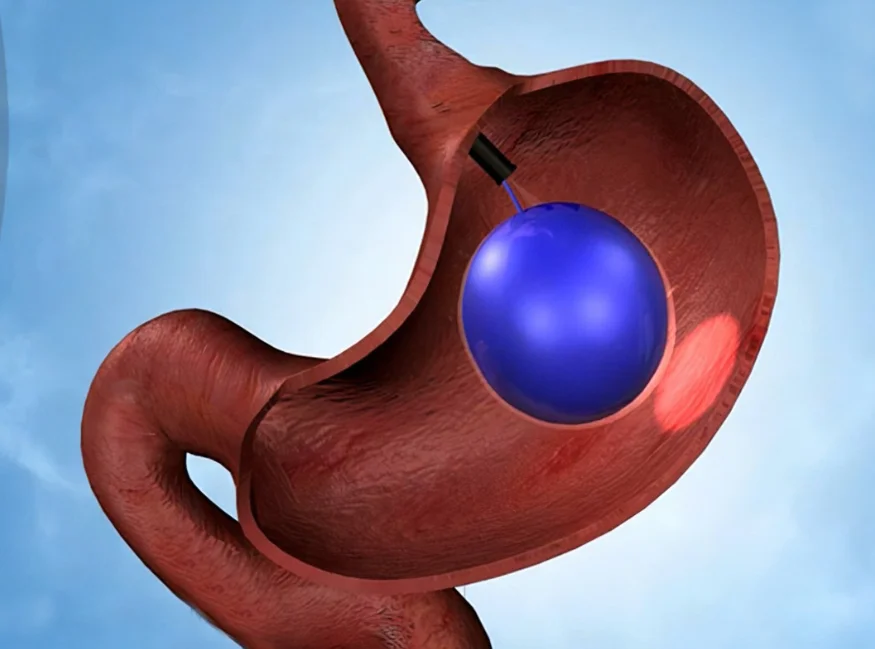Prothrombin complex concentrate (kcentra) administration increases the levels of Factor II, IIV, IX, X, Protein C, and Protein S.
Prothrombin complex concentrate Indications:
-
Bleeding, treatment and prophylaxis:
- It can cause urgent reversal of acquired coagulation factor deficiency induced by vitamin K antagonist (eg, warfarin) therapy in patients with life-threatening hemorrhage or a in case of an urgent surgery.
-
Off Label Use of Prothrombin in Adults:
- Fatal hemorrhage associated with non-vitamin K antagonist anticoagulants.
Prothrombin complex concentrate (kcentra) Dose in adults:
Note:
Human Prothrombin complex concentrate (Factors II, VII, IX, X, Protein C, Protein S] contains therapeutic levels of factor VII component and should not be confused with Human Factor IX complex [Factors II, IX, X] (Bebulin, Profilnine) which contains low nontherapeutic levels of factor VII.
Kcentra, Beriplex P/N [Canadian product]:
- Vitamin K antagonist reversal in patients with acute massive hemorrhage or in case of urgent surgery/invasive procedure:
- Dosing depends on current pre-dose INR (international normalized ratio) and is expressed in units of factor IX activity.
- It should be given in combination with vitamin K concurrently.
- Repeat dosing is not required.
-
Pretreatment INR: 2 to <4:
- Administer 25 units/kg.
- The maximum dose is 2,500 units
-
Pretreatment INR: 4 to 6:
- Administer 35 units/kg;
- The maximum dose is 3,500 units
-
Pretreatment INR: >6:
- Administer 50 units/kg;
- The maximum dose is 5,000 units
Octaplex [Canadian product] for Bleeding and perioperative prophylaxis of bleeding during vitamin K antagonist therapy:
Dosing is based on the severity of the disorder, site, and severity of bleeding, and clinical condition of the patient.
Intravenous approximate doses required for normalization of INR (≤1.2 within 60 minutes)
The dosage is expressed in units of factor IX activity:
-
Pretreatment INR: 2 to 2.5:
-
- Administer 22.5 to 32.5 units/kg.
- The maximum dose is 3,000 units (or 120 mL)
-
-
Pretreatment INR:5 to 3:
- Administer 32.5 to 40 units/kg;
- The maximum dose is 3,000 units (or 120 mL)
-
Pretreatment INR: 3 to 3.5:
- Administer 40 to 47.5 units/kg;
- The maximum dose is 3,000 units (or 120 mL)
-
Pretreatment INR: >3.5:
- Administer >47.5 units/kg;
- The maximum dose is 3,000 units (or 120 mL)
Once the vitamin K antagonist induced impaired hemostasis is corrected in patients treated in combination with a proper vitamin K dose, repeat dosing with Prothrombin concentrate is usually not required.
Prothrombin concentrate complex dose in the Life-threatening hemorrhage associated with non-vitamin K antagonist anticoagulation:
Optimal intravenous dosing has not been illustrated.
According to the European Heart Rhythm Association, the use of 50 units/kg with an additional 25 units/kg if required is recommended based on very limited evidence in healthy volunteers.
-
Intracranial hemorrhage (ICH) due to various antithrombotic agents according to the Neurocritical Care Society/ Society of Critical Care Medicine (NCS/SCCM):
-
Oral direct factor Xa inhibitor-mediated (apixaban, edoxaban, rivaroxaban):
- 50 units/kg if intracranial Hge occurred within 3 to 5 terminal half-lives of drug exposure or coexisting hepatic failure
-
Direct thrombin inhibitor mediated (argatroban, dabigatran [if idarucizumab unavailable], bivalirudin/desirudin):
- 50 units/kg if direct thrombin inhibitor is given within 3 to 5 half-lives previously and renal function is normal or
- there is renal impairment causing drug exposure beyond 3 to 5 half-lives.
-
Prothrombin complex concentrate (kcentra) Dosage in children:
Refer to adults dosing.
Use in Pregnancy and lactation:
- The source of prothrombin concentrate IV is purified plasma from human beings.
Prothrombin Concentrate Complex use during breastfeeding:
- It is not clear if prothrombin complex concentrate secretion occurs in breast milk.
- Prothrombin complex concentrate should only be prescribed when there is a clear indication that it will help a nursing woman.
Dose adjustment in renal disease:
There are no dosage adjustments required in the manufacturer’s labeling.
Dose adjustment in liver disease:
There are no dosage adjustment required provided in the manufacturer’s labeling.
Side Effects of Prothrombin complex concentrate (kcentra):
-
Cardiovascular:
- Hypotension
- Tachycardia
- Atrial Fibrillation
- Hypertension
- Pulmonary Embolism
- Pulmonary Edema
- Cerebrovascular Accident
- Arteriovenous Fistula Site Complication
- Chest Pain
- Deep Vein Thrombosis
- Venous Thrombosis
- Thrombosis
-
Central Nervous System:
- Headache
- Insomnia
- Intracranial Hemorrhage
- Mental Status Changes
-
Endocrine & Metabolic:
- Hypervolemia
- Hypokalemia
-
Gastrointestinal:
- Nausea And Vomiting
- Constipation
- Diarrhea
-
Hematologic And Oncologic:
- Anemia
- Prolonged Bleeding Time
-
Hepatic:
- Increased Serum Transaminases
-
Immunologic:
- Antibody Development
-
Local:
- Burning Sensation At Injection Site
-
Neuromuscular & Skeletal:
- Arthralgia
-
Respiratory:
- Pleural Effusion
- Respiratory Distress
- Rales
Contraindication to Prothrombin complex concentrate (kcentra):
Kcentra, Beriplex P/N [Canadian Product]:
- Hypersensitivity to prothrombin complex concentrate, (PCC), or any component of formulation, including factors II, VII and IX, X and protein C and S. antithrombin (3) and human albumin
- Disseminated intravascular coagulation
- Heparin-induced thrombocytopenia is a known condition.
Octaplex [Canadian Product]:
- Hypersensitivity to any component of the formulation or prothrombin complex concentrate,
- Heparin-induced thrombocytopenia type 2
- Heparin allergy known
- Individuals with MI/high risk for thrombosis/angina pectoris have non-life-threatening bleeding episodes
- Individuals with untreated disseminated intravascular coagulation can have non-life-threatening bleeding episodes that can be treated with fresh frozen plasma (FFP).
- Chronic liver disease can cause coagulation disorders
- Transplantation of liver
- Hepatic parenchymal disorders can cause bleeding
- Varieties esophageal
- Major liver surgery
- Immunoglobulin A (IgA), deficiency. There are known antibodies against IgA.
Warnings and precautions
-
Hypersensitivity reactions
- In severe cases, hypersensitivity reactions such as angioedema/bronchospasm/ dyspnea/flushing/ hypotension/ nausea/vomiting/pulmonary edema/ Urticaria/ Tachycardia/ tachypnea can occur and should be stopped.
-
Thromboembolic Events: [US Boxed Warning]
- Vitamin K antagonist therapy may increase the risk of thromboembolic diseases. Patients who are treated with prothrombin concentrate may be at greater risk.
- It is important to weigh the benefits of reverse vitamin K antagonist therapy against the possibility of thromboembolism.
- Some cases have seen fatal/nonfatal arterial/venous thromboembolism, and disseminated intravascularcoagulation.
- Patients who have had a thromboembolic or myocardial ischemia/DIC/ cerebrovascular disease/ transient Ischemia/ unstable angina/ severe peripheral vascular disease within the past 3 months are not eligible for use.
-
Hypercoagulopathy
- Vitamin K antagonists may cause an increase in the risk of hypercoagulable states due to prothrombin concentration.
Monitoring parameters:
International normalized ratio at baseline and at half hour after the dose, clinical response to the treatment, and signs of thromboembolic disease should be checked.
How to administer Prothrombin complex concentrate (kcentra)?
Kcentra, Beriplex P/N [Canadian product]:
- Intravenous administration at room temperature at a rate of 0.12 mL/kg/minute (or 3 units/kg/minute).
- The dose should not be exceeded beyond 8.4 mL/minute (~210 units/minute). Blood should be prevented from entering into the syringe as fibrin clot formation might occur.
Octaplex [Canadian product]:
- Intravenous administration at a rate of 1 mL/minute initially, followed by 2 to 3 mL/minute.
- Reduce infusion rate /interrupt infusion if patients develop tachycardia.
Mechanism of action of Prothrombin complex concentrate (kcentra):
- Prothrombin complex concentrate increases the levels of vitamin K-dependent factors (II, VII and IX), protein C and protein X.
- Coagulation factors II and IX are part of the intrinsic coagulation pathways, while factor VII is part the extrinsic.
Extrinsic route:
- Endothelial tissue factors (TF) are released from damaged blood vessels. These cells react with factor VII to create TF-factor VIIa.
Intrinsic pathway
- In the intrinsic pathway, factor IXa is transformed into factor IX. Factor IXa, along with TF-factor VIIa, converts factor X into factor Xa through the final common pathway to coagulation.
- Factor Xa activates prothrombin II into factor Ia, which results in the conversion fibrinogen to fibrin and clot formation.
- Vitamin K-dependent inhibiting enzymes that regulate the coagulation process require protein C and S.
- Protein S is a cofactor of protein C, which is then converted to activated proteinC (APC). Activated proteinC is a serine protease that inhibits factors VIIIa and Va, which limits thrombotic formation.
The Onset of action
- Rapid, significant INR decline is observed within 10 minutes
Duration:
- 6 to 8 hours
Half-life elimination:
-
Factor II:
- 48 to 60 hours
-
Factor VII:
- 1.5 to 6 hours
-
Factor IX:
- 20 to 24 hours
-
Factor X:
- 24 to 48 hours
-
Protein C:
- 1.5 to 6 hours
-
Protein S:
- 24 to 48 hours
Note: Half-lives may be significantly decreased in severe liver damage, disseminated intravascular coagulation, and extended catabolic metabolism.
Prothrombin complex concentrate Brand Names (International):
- Kcentra
- Beriplex P/N
- Beriplex
- Cofact
- Confidex
- Kcentra
- Octaplex
Prothrombin complex concentrate Brand Names in Pakistan:
No Brands Available in Pakistan.




